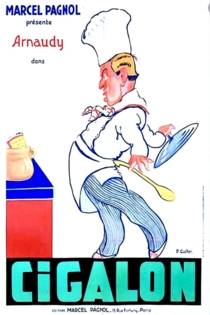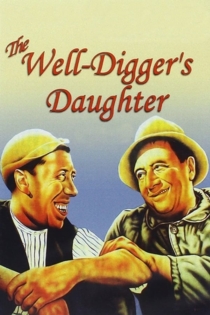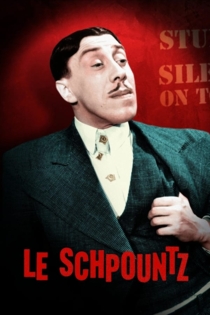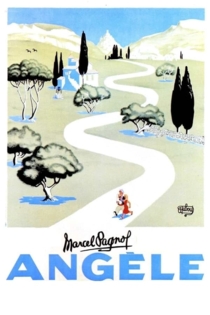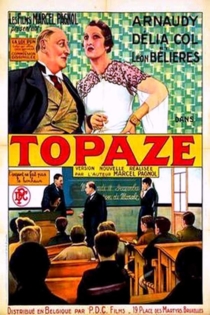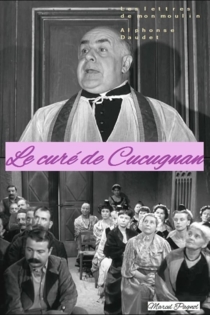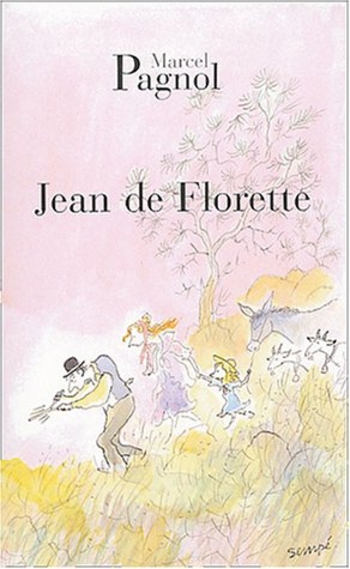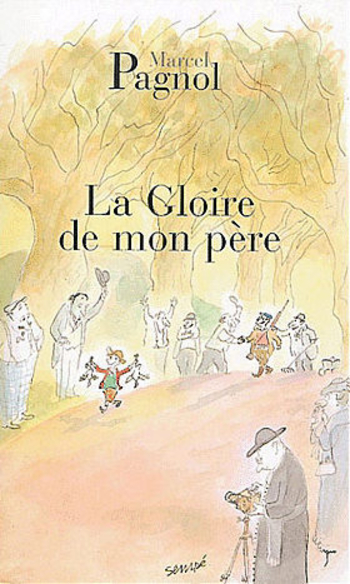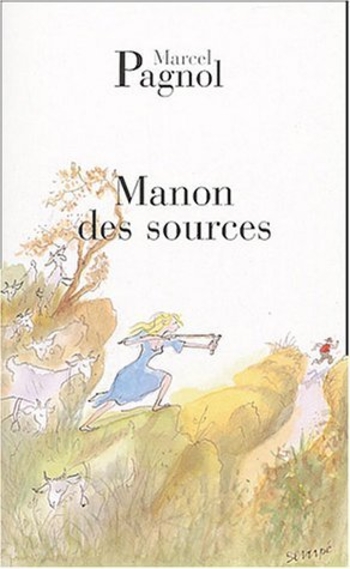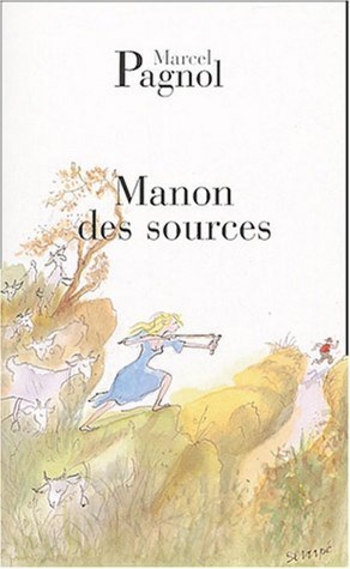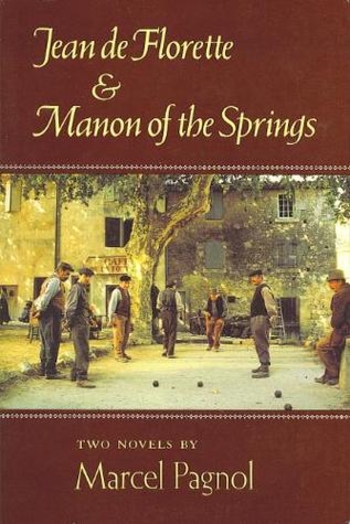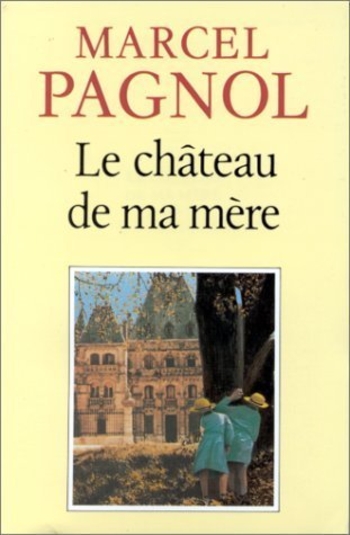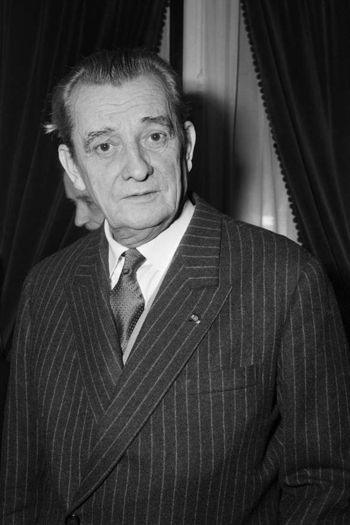
Marcel Pagnol
1895 - 1974Pagnol was born on 28 February 1895 in Aubagne, Bouches-du-Rhône department, in southern France near Marseille, the eldest son of schoolteacher Joseph PagnolA and seamstress Augustine Lansot. Marcel Pagnol grew up in Marseille with his younger brothers Paul and René, and younger sister Germaine.
In July 1904, the family rented the Bastide Neuve, – a house in the sleepy Provençal village of La Treille – for the summer holidays, the first of many spent in the hilly countryside between Aubagne and Marseille. About the same time, Augustine's health, which had never been robust, began to noticeably decline and on 16 June 1910 she succumbed to a chest infection ("mal de poitrine") and died, aged 36. Joseph remarried in 1912.
In 1913, at the age of 18, Marcel passed his baccalaureate in philosophy and started studying literature at the University in Aix-en-Provence. When World War I broke out, he was called up into the infantry at Nice but in January 1915 he was discharged because of his poor constitution ("faiblesse de constitution"). On 2 March 1916, he married Simone Colin in Marseille and in November graduated in English. He became an English teacher, teaching in various local colleges and at a lycée in Marseille.
In 1922, he moved to Paris, where he taught English until 1927, when he decided instead to devote his life to playwriting. During this time, he belonged to a group of young writers, in collaboration with one of whom, Paul Nivoix, he wrote the play, Merchants of Glory, which was produced in 1924. This was followed, in 1928, by Topaze, a satire based on ambition. Exiled in Paris, he returned nostalgically to his Provençal roots, taking this as his setting for his play Marius, which later became the first of his works to be adapted into a film in 1931.
Separated from Simone Collin since 1926 (though not divorced until 1941), he formed a relationship with the young English dancer Kitty Murphy. Their son Jacques Pagnol was born on 24 September 1930. (Jacques later became his father's assistant and subsequently a cameraman for France 3 Marseille.)
In 1929, on a visit to London, Pagnol attended a screening of one of the first talking films and he was so impressed that he decided to devote his efforts to cinema. He contacted Paramount Picture studios and suggested adapting his play Marius for cinema. This was directed by Alexander Korda and released on 10 October 1931. It became one of the first successful French-language talking films. ...
Source: Article "Marcel Pagnol" from Wikipedia in English, licensed under CC-BY-SA 3.0.
César
Marcel Pagnol
Raimu, Pierre Fresnay
Honoré Panisse is dying, cheerfully, with friends, wife, and son at his side. He confesses to the priest in front of his friends; he insists that the doctor be truthful. But, he cannot bring himself to tell his son Césariot that his real father is Marius, the absent son of César, Césariot's godfather. Panisse leaves that to Fanny, the lad's mother. Dissembling that he's off to see a friend, Césariot then seeks Marius, now a mechanic in Toulon. Posing as a journalist, Césariot spends time with Marius and leaves believing tales he is a petty thief. Only after the truth comes out can Marius, Fanny, César, and Césariot step beyond the falsehoods, benign though they may be.
César
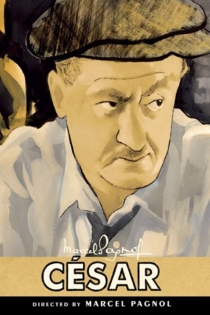
La Femme du boulanger
Marcel Pagnol
Raimu, Ginette Leclerc
In this little Provencal village, a new baker, Aimable, settles down. His wife Aurelie is beautiful and much younger than he. She departs with a shepherd the night after Aimable produces his first breads. Aimable is so afflicted that he can not work anymore. Therefore, the villagers, who initially laughed at his cuckoldry, take the matter very seriously (they want the bread) and organize a plan to find Aurelie and to bring her back to the bakery.
The Baker's Wife
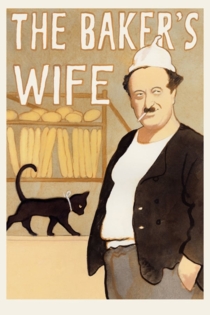
Manon des sources
Marcel Pagnol
Jacqueline Pagnol, Rellys
Marcel Pagnol's adaptation of his own novel Manon des sources, the story of a shepherdess who exacts her revenge on the townsfolk she blames for killing her father, in two parts: Manon des sources and Ugolin.
Manon of the Spring
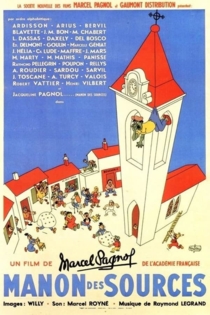
Regain
Marcel Pagnol
Fernandel, Robert Le Vigan
In the 30s, a small village in the Provence is losing its inhabitants because young people prefer to go to the city to find easy jobs and escape from being farmers living in relative poverty. Only a few old people and the poacher Panturle remain. Panturle dreams of bringing the village back to life, finding a wife, founding a family and work as a farmer. One day, the village is visited by a traveling knife-grinder, Urbain Gedemus and a young woman, Arsule. Gedemus treats Arsule like a slave, but Arsule accept this because she has nowhere to go and -we guess- her 'work' with Gedemus is the last thing that saves her from being a prostitute. When she meets Panturle and knows about his dreams, she escapes from Gedemus and decides to stay with him. Together, they start a new life, made of hard farming work but mostly of happiness to have each other - fulfilling the earlier dreams of Panturle. Can anything break the happiness of their new life?
Harvest
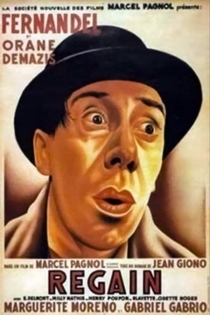
Jofroi
Marcel Pagnol
Vincent Scotto, Henri Poupon
Jofroi sells his orchard to Alphonse. Alphonse wants to use the land for crops, so he starts to cut down the trees. Jofroi is furious: how can someone cut down those trees? He threatens to commit suicide so that the small town will blame Alphonse and Alphonse’s life will be miserable. Alphonse, the curate, the teacher, and some of the townsfolk spend the rest of the movie trying to keep Jofroi from committing suicide…
Ways of Love
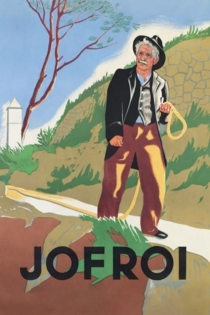
Topaze
Marcel Pagnol
Fernandel, Hélène Perdrière
Albert Topaze, sincere schoolteacher addicted to "rote" morality, works at a private school run by supremely money-grubbing M. Muche, whose daughter, also a teacher, makes cynical use of the knowledge that Topaze loves her. Alas, Topaze's naive honesty brings him unjust dismissal...and makes him fair game for the "aunt" of his private pupil, really the mistress of crooked politician Regis, who needs an honest-seeming "front man." Can artful Suzy Courtois keep Topaze on the string? With steadily escalating disillusion comes moral crisis...
Topaze

Merlusse
Marcel Pagnol
Henri Poupon, André Pollack
"Merlusse" is French schoolboy slang for codfish, and M. Blanchard, a professor at a certain lycée, was known to his victims by that name. On Christmas eve, when some twenty of the students—orphans, foreigners or just plain "unwanteds"—had to remain in the boarding school, Merlusse is placed in charge. His glass eye glares at them stonily, his good one with no less severity. He sets them to tasks, marches like a proctor up and down the aisles, exacts to the utmost the last measure of discipline. But when the youngsters awake in the morning, there are toys by each bed in the dormitory and M. Blanchard, no longer to be called Merlusse, is exposed for the softhearted fraud he is.
Merlusse
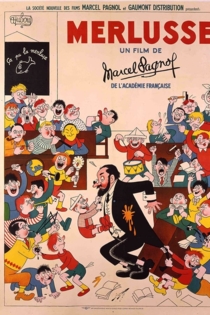
Les lettres de mon moulin
Marcel Pagnol
Antonin Fabre, Fernand Sardou
Set in the countryside of Provence, the film is based on three tales from Alphonse Daudet's 1869 short story collection Letters from My Windmill: "The Three Low Masses", "The Elixir of Father Gaucher" and "The Secret of Master Cornille".
Letters from My Windmill
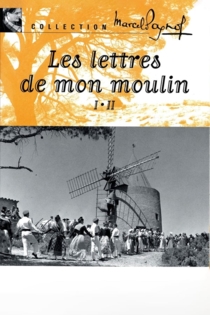
La prière aux étoiles
Marcel Pagnol
Pierre Blanchar, Josette Day
Pierre and Florence meet at the fair in Paris. They vow eternal love and go to Cassis, under the Southern sun. But Florence has a burdensome past: before meeting Pierre she was a kept woman. Her chivalrous lover, Dominique, chooses to set her free. But Pierre is an uncompromising man and, furious with Florence, threatens to leave her...
La prière aux étoiles
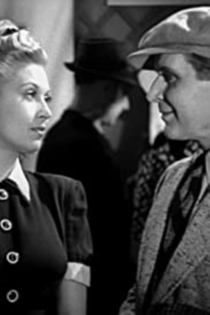
Cigalon
Marcel Pagnol
Alexandre Arnaudy, Henri Poupon
Cigalon (Alexandre Arnaudy) manages a restaurant in a small town in Provence. A chef with a high opinion of his past culinary achievements, he makes no effort to attract customers and is rude to those who venture into his establishment expecting to be fed. To Cigalon, gastronomy is the greatest of all the arts, and so he is naturally aghast when a former laundress named Madame Toffi (Marguerite Chabert) opens a restaurant next door to his. Madame Toffi does not share his elevated notions and intends to serve meals to the general public - an appalling prospect! While Cigalon's restaurant remains empty, Madame Toffi's is always busy. To prove he's the better chef, Cigalon must now start catering to the whims of paying customers or be forced out of business.
Cigalon
